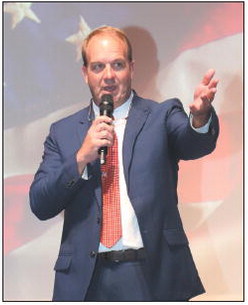continued from page fished and ….
continued from page
fished and played golf in the spring and summer. In the greatest era of Ole Miss football, it was difficult not to enjoy the best of times.
Georgia began playing Ole Miss in 1940 when Harry Mehre, forced out of Athens in 1937, became the Rebels’ head coach. After three games during World War II, the next meeting came about in 1955, after which there was another break of ten years before Ole Miss became one of the Bulldogs’ annual rivals. The Bulldogs have a dominant lead in the all-time series, winning 34 games, losing 13, with one tie.
It has been my good fortune to know many of the Ole Miss luminaries, including Vaught, Gibbs, and Archie Manning in particular. Archie says the Ole Miss people really appreciate the engaging compatibility and patronage that Bulldog fans have with that legendary party scene, The Grove.
A story involving a coaching personality—other than Harry Mehre—who spent time on both campuses is well known by many of Archie’s Ole Miss friends.
When Billy Kinard, a competent back for Vaught, took over as head coach, he was a tough no-nonsense type who did not suffer fools gladly. We enjoyed a nice friendship when he coached the defensive backs at Georgia.
In 1971, Georgia enjoyed a serendipitous season, nearly winning the conference championship with a talented group of sophomores, led by the late Andy Johnson.
In Jackson, the Bulldogs defeated the Rebels handily, 38-7. After the game, I hosted the Georgia locker room show with Vince Dooley and beat it over to the Ole Miss locker room to see if I could speak to my friend.
Billy was sitting in a folding chair, saying nothing. About a dozen writers were standing around with note pads and their pens cocked but Billy was saying nothing, not a word.
I slipped through the crowd, shook hands with him and said, “Billy, know it is a tough loss, you have a young team but you’ll get better.” He smiled and said, “You come out here and figure that out in one day. These [expletives] haven’t figured it out all year.”
As we continued our brief conversation, he spotted a reporter making a note, “Boy, don’t you write down anything I say, this is a private conversation.” He then threatened to whip his anatomy. I thought it was best to wish him well and head for the Georgia team bus, but I concluded his career was likely to be short termed.
A little over a year later, early in the season of 1973, Ole Miss fired Billy and his brother, Bruiser, who was the athletic director in what became known as the Midnight Massacre.
If any football coach needed a public relations coach, it was Billy. He was a man’s man, and when he was in Athens, he was very popular with the staff. However, even in conservative Mississippi, it is best not to strong arm the press.





